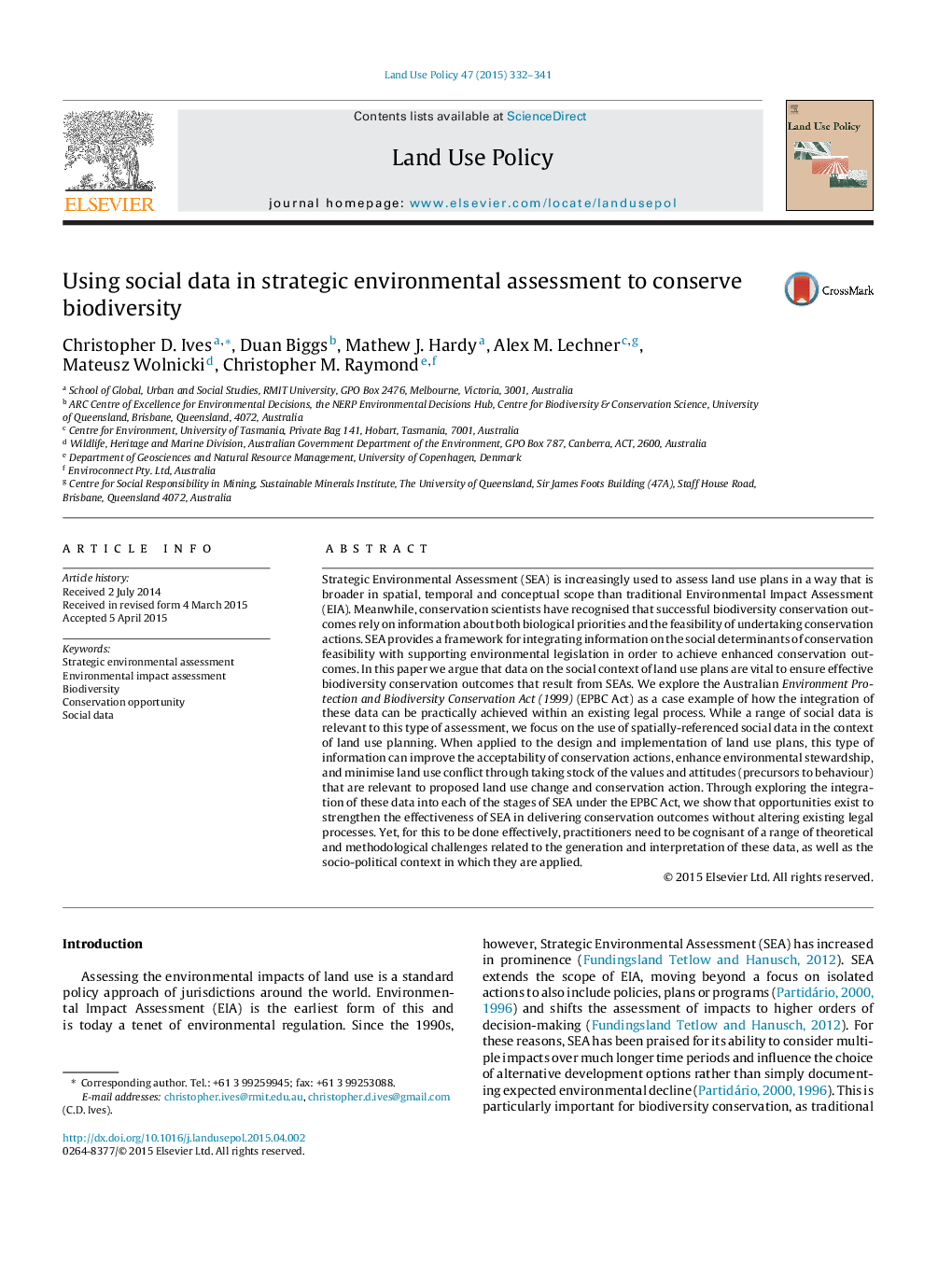| کد مقاله | کد نشریه | سال انتشار | مقاله انگلیسی | نسخه تمام متن |
|---|---|---|---|---|
| 6548142 | 160098 | 2015 | 10 صفحه PDF | دانلود رایگان |
عنوان انگلیسی مقاله ISI
Using social data in strategic environmental assessment to conserve biodiversity
ترجمه فارسی عنوان
استفاده از داده های اجتماعی در ارزیابی محیطی استراتژیک برای حفظ تنوع زیستی
دانلود مقاله + سفارش ترجمه
دانلود مقاله ISI انگلیسی
رایگان برای ایرانیان
کلمات کلیدی
ارزیابی محیطی استراتژیک، ارزیابی اثرات زیست محیطی، تنوع زیستی، امکان حفاظت، داده های اجتماعی،
موضوعات مرتبط
علوم زیستی و بیوفناوری
علوم کشاورزی و بیولوژیک
جنگلداری
چکیده انگلیسی
Strategic Environmental Assessment (SEA) is increasingly used to assess land use plans in a way that is broader in spatial, temporal and conceptual scope than traditional Environmental Impact Assessment (EIA). Meanwhile, conservation scientists have recognised that successful biodiversity conservation outcomes rely on information about both biological priorities and the feasibility of undertaking conservation actions. SEA provides a framework for integrating information on the social determinants of conservation feasibility with supporting environmental legislation in order to achieve enhanced conservation outcomes. In this paper we argue that data on the social context of land use plans are vital to ensure effective biodiversity conservation outcomes that result from SEAs. We explore the Australian Environment Protection and Biodiversity Conservation Act (1999) (EPBC Act) as a case example of how the integration of these data can be practically achieved within an existing legal process. While a range of social data is relevant to this type of assessment, we focus on the use of spatially-referenced social data in the context of land use planning. When applied to the design and implementation of land use plans, this type of information can improve the acceptability of conservation actions, enhance environmental stewardship, and minimise land use conflict through taking stock of the values and attitudes (precursors to behaviour) that are relevant to proposed land use change and conservation action. Through exploring the integration of these data into each of the stages of SEA under the EPBC Act, we show that opportunities exist to strengthen the effectiveness of SEA in delivering conservation outcomes without altering existing legal processes. Yet, for this to be done effectively, practitioners need to be cognisant of a range of theoretical and methodological challenges related to the generation and interpretation of these data, as well as the socio-political context in which they are applied.
ناشر
Database: Elsevier - ScienceDirect (ساینس دایرکت)
Journal: Land Use Policy - Volume 47, September 2015, Pages 332-341
Journal: Land Use Policy - Volume 47, September 2015, Pages 332-341
نویسندگان
Christopher D. Ives, Duan Biggs, Mathew J. Hardy, Alex M. Lechner, Mateusz Wolnicki, Christopher M. Raymond,
